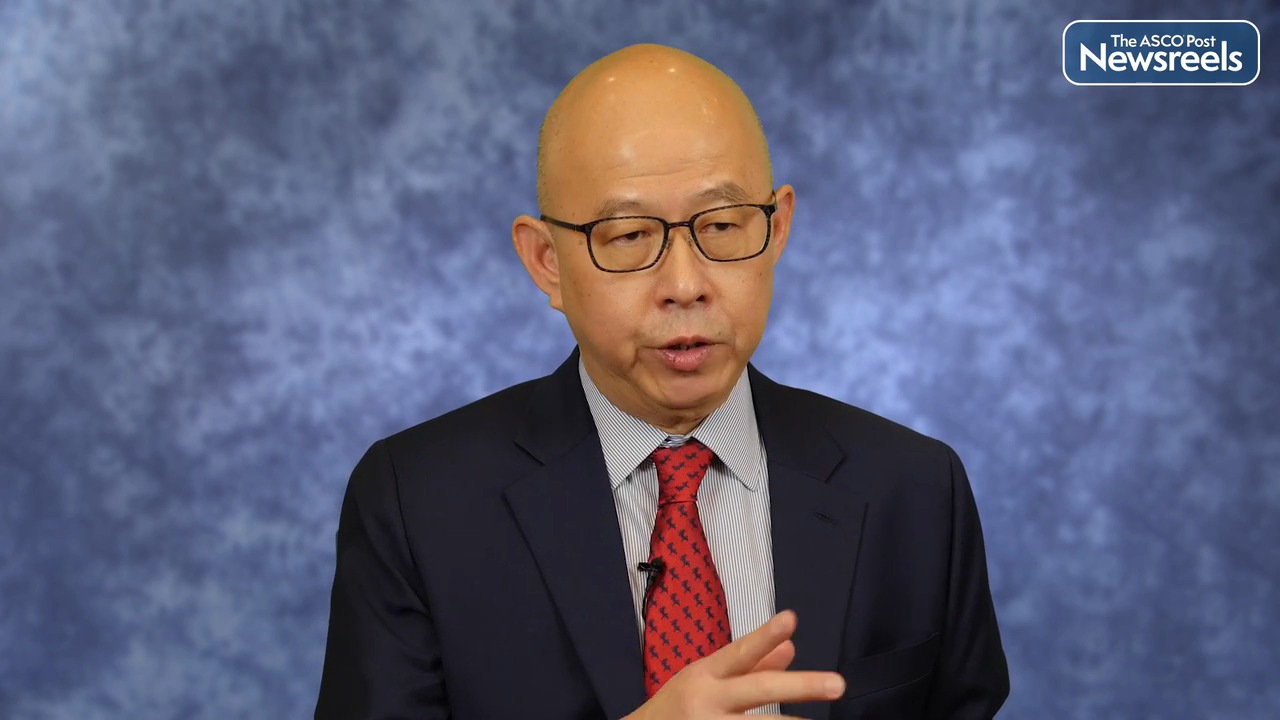Transcript
Disclaimer: This video transcript has not been proofread or edited and may contain errors.
The purpose of my session is really focused on the importance of resistance exercise, which is very much overlooked as a component of exercise for cancer survivorship. When we think about exercise guidelines for cancer survivors, we think about aerobic exercise, 150 minutes of moderate intensity exercise, or 75 minutes of vigorous intensity exercise. So really, the presentation that I delivered at AACR was focusing on resistance exercise, the importance of resistance exercise, some of the challenges that are often encountered with resistance exercise.
But what's really important are the benefits. And most people think of resistance exercise or strength training, weightlifting, etc., as gaining muscle. But the benefits of resistance exercise really extend beyond hypertrophy, as we would call it, which is muscle building. The health benefits of resistance exercise include body composition, improving glucose homeostasis, of course preventing declines or mitigating declines in muscle mass, cognitive function, muscle strength, mitochondrial function at the level of muscle, and of course, as we know, improving mobility.
These are all really, really important benefits of resistance exercise often overlooked. Importantly, there's a profound amount of evidence that supports that those who have resistance trained or have experience with participating in resistance training versus those who exhibit a sedentary lifestyle have improved cognitive function and physical independence. In other words, the disability rate and the dependence threshold is very low. Other important benefits of resistance exercise highlight in my presentation include, again, metabolic regulation, which is critically important for the prevention or the management of heart disease and diabetes, as well as we know with muscle protein remodeling, allowing muscle to grow properly, allowing muscle to prevent from declining or from wasting.
And we know this with low to moderate resistance exercise, so this doesn't necessarily need to be high loads or high volumes of resistance exercise. Really importantly, that is often overlooked is that resistance exercise is also associated with reduced mortality. And this has been shown in epidemiologic studies where individuals reported, yes, I do participate in resistance exercise, or, no, I do not. And those that did, did see a substantial reduction in mortality rates. With respect to cancer and where studies are at to date, what I shared in my talk is a plethora of studies that are ongoing now, including in those from my lab, that support using resistance exercise not only for the health benefits that I mentioned, but also targeting treatment outcomes.
We previously reported that resistance exercise improves muscle mass, both at the whole muscle level looking at strength, and then also at muscle biomarkers such as biomarkers related to hypertrophy, and found improvements at that level as well. So now we're taking this research further and we're looking at whether resistance exercise can actually improve lean mass and these similar biomarkers in the muscle in men with metastatic prostate cancer. Other studies we have ongoing in this area are dealing with whether resistance exercise can actually improve treatment tolerance, reduce treatment toxicities.
There's a study that's that's fairly well known, referred to as the Force Trial, that investigated the impact of resistance exercise on dose reductions, dose delays, and early stoppage of chemotherapy in patients with colon cancer led by Jeff Meyerhardt at Dana-Farber, Betty Kahn at Kaiser. Early results of those are in progress and will be published soon. And then lastly, to wrap up exciting interventions that we're conducting in pancreas cancer with resistance exercise, bladder cancer is prehabilitative exercise as well as I mentioned previously, metastatic prostate cancer using resistance exercise as well.
So really the take home messages here are that the benefits of resistance exercise are really multi-system performed either before, during, or after treatments. The impact of resistance exercise on treatment outcomes is relatively unknown, but we do know that we really need to push the paradigm here and really integrate more resistance exercise interventions or even programming into cancer survivorship studies. Modulating and modifying resistance exercise to the needs of cancer survivors is really a high needs and high research priority.
And lastly, in order to do this, as we know, we need multi-site collaborations both nationally and internationally in order to really push this field forward to develop and to implement resistance exercise into clinical practice.





